Last week was the birthday week for K Hari Kumar, and I did plan to do this post celebrating that occasion, but alas! Like much else that I have not been able to do on-time recently, this too stayed a pipe dream. Can’t blame anything or anyone else; it’s just too much on my platter and a severely lost appetite; entirely my own doing.
I know Harikumar Krishnamoorthy , better known as K Hari Kumar, as the writer of eminent director Sangeeth Sivan, and respect him a lot for being able to choose a genre early in his life and stick to it. Horror/thriller is his domain of comfort, and his bread-butter. Not the ghoulish or zombie or slasher or Annabelle type flicks (at least not yet); he loves to write psychological stuff, with a strong element of mind-bending human interactions – and I love him for that.
A seasoned writer, my friend Hari has quite a few book-titles under his belt – and as we talk, he is working on couple more. He happens to be the first (and only) Indian writer to be listed on Amazon.com’s top 50 bestsellers in the paranormal and horror category.
I had the good fortune of reading his latest book that helped him reach there, a book he wrote sometime early last year. Hari shared with me a copy of ‘India’s Most Haunted : Tales of Terrifying Places’. I loved the rush I got out of it.
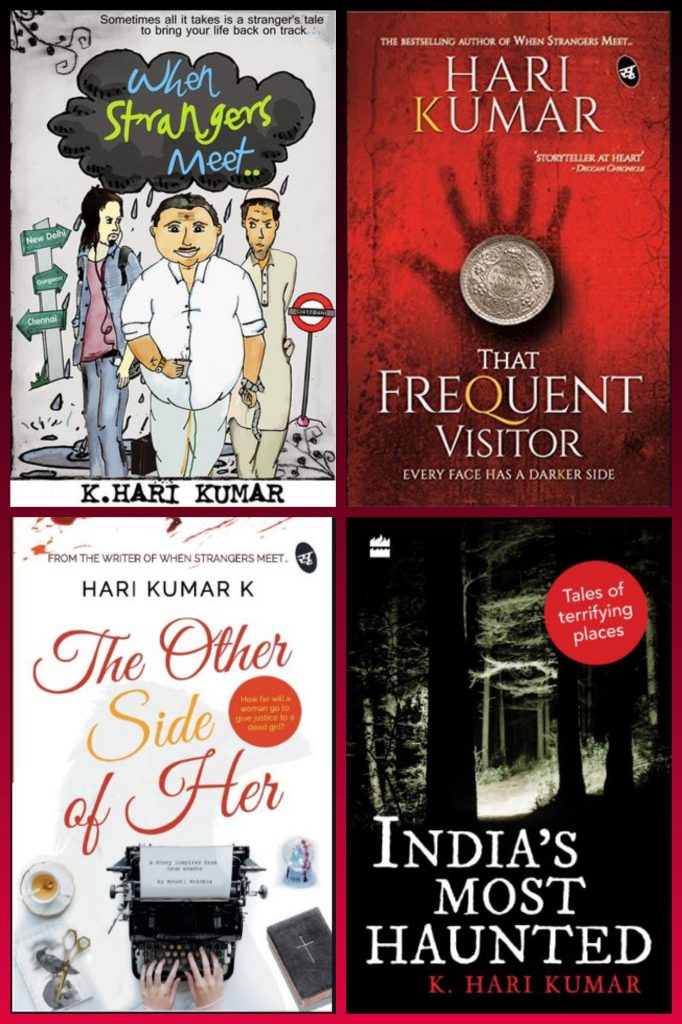
His screenplays range from theatrical releases to web-series – for Sangeeth Sivan, as well as others. I read both his book ‘The Other Side of Her’ and saw the web-series that spawned out of it, “Bhram” – starring Kalki Koechlin. It’s on Zee 5.
For those of you that haven’t seen ‘Bhram’ yet, please go ahead. You will be pleasantly surprised by its multi-layered plotting and subtle, slow-burn characterization – things that are now slowly making its mark in other Indian web-shows. Hari’s book was good, but his screenplay for that web-series took it to a whole new level.
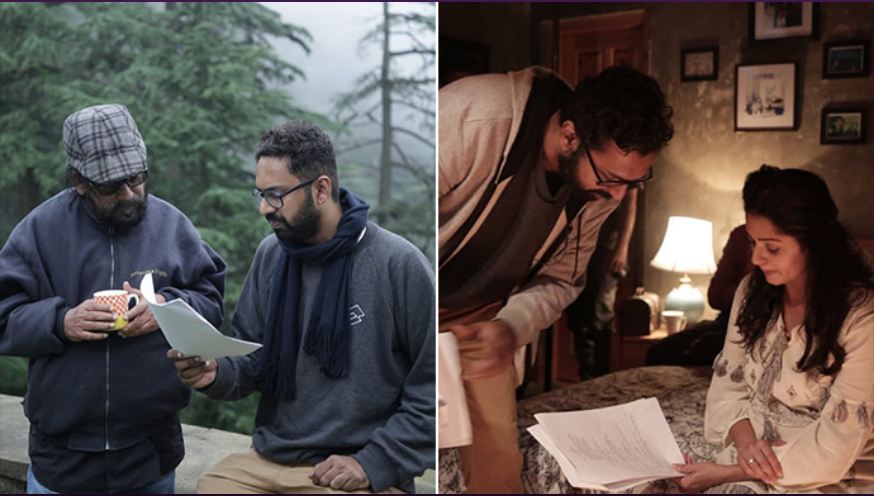
Anyways, this post is not about ‘Bhram’ – which I already wrote about a year back. This is more about K Hari Kumar and his craftsmanship. It’s about my intent of reaching out to young screenwriters with experience of cross-platform writing.
Obviously, his name cropped top-of-the-mind.
Hari’s chosen field, the genre of psychological horror/ thriller is a relatively less known genre in India. So I asked him, are the Indian audiences prepared for this kind of content yet?
I would really love to do things like this. So basically I wanted to know – with a host of streaming services bringing international content right to our handsets, stuff that puts us at ease with the mind-hunter school of storytelling – is it time now to think a bit outta-box?
So how different it is to write for an OTT platform?
Do they always expect / promote a collaborative effort? Does that help? For me, the process of collaboration is compulsory and complementary. There’s no space for any ego here – believe me. Even those who write stuff alone need people to read it and suggest revisions before they bring it on a public platform.
The best of writers I have met during the course of my 25 odd years of work always wanted at least a second pair of eyes to look at their drafts. There might be exceptions to that, but mostly, it helps if someone sensible (and likeminded) reads what you wrote and provide inputs.
I don’t know about others, but I like the concept of ‘writer’s room’ a lot; and not just because I am a loner otherwise, who spends all his free time figuring out how not to be a misfit – I genuinely believe collaboration improves my writing.
Most conventional schools of screenwriting root for the character based approach of storytelling. That means most stories are expected to be told around a single protagonist / set of protagonists with a single goal. This ‘unit’ – his world, his mission, his evolution and climax and his arc of growth, so on and so forth.
This does work, but I am not quite sure how. For me, I am equally comfortable with Ramayana and Mahabharata. Perhaps, in the mind of screenplay gurus – it allows the viewer to connect better if they do not have to deal with a jamboree of characters; or maybe because this single protagonist ‘super-hero’ (or at times ‘Justice League’ with a unified goal) approach has worked the best traditionally for easy viewing entertainment; perhaps it’s just because thematic approaches are far tougher to conceive and handle.
Whatever might be the reason, to get your project approved – your best bet is a single character pitch. That’s a ground rule, or your project might get nipped in the bud – at least in the Indian OTT scene. Here we love to make others follow rules set by the ‘big-brother’, and anything beyond that convention is likely to get snubbed.
Anyways, let’s not grumble. No use being unruly, especially when it might thwart you from bringing home the bacon.
I think Hari would agree with me on that.
I have now started working on scripts for theatrical release and OTT platforms simultaneously – and not all of it is non-fiction. I find both these release platforms quite different – but since I am a greenhorn, I believe I should reserve my opinion for now.
But there’s this one thing I have felt – which I can share. To some extent, personally, a film screenplay seems to give me more creative satisfaction compared to series scripts; more freedom to think different – I mean.
But yes, it’s too early for me to reach any inference.
Let’s ask the expert.
Hope that happens soon Hari. If you ask me – now has always been the best time ever.
Let’s return to one of Hari’s works has that covered the entire spectrum – an intended feature screen play that turned into a novel which then became an OTT series. Yes, once again, we are back to ‘Bhram’.
No doubt that’s just the right example for this post. I asked Hari to tell my readers how he adapted his writing style and structuring to meet the diverse needs of these platforms.
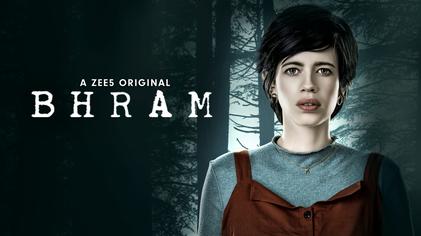
Finally, the usual end question; what would be his advice to newcomers who want to get into fiction screenwriting – for OTT as well as the big screen? How should they prepare?
That helps; me, at least.
Thanks Hari, and like you always say – may the ghost be with you; and with me too. The right kind of ghost, preferably! The ghastly year-gone-by has spooked all our lives in more ways than we thought it was ever possible. However, things are changing. I need to change too.
This is my first post of the New Year. My regularity has suffered a lot in the past few months. My sense of discipline continues to maintain a social distance with me. To start with, I need to change that; and I will. The next post will be later this week itself.
That will be with and about someone who has been an indelible influence in my growing up years – and that of many others of at least a couple of generations. For now, I will retain the suspense. Keep watching this space.
This week for sure.
Unlike my prospective producers, I won’t put your patience to test anymore; promise.
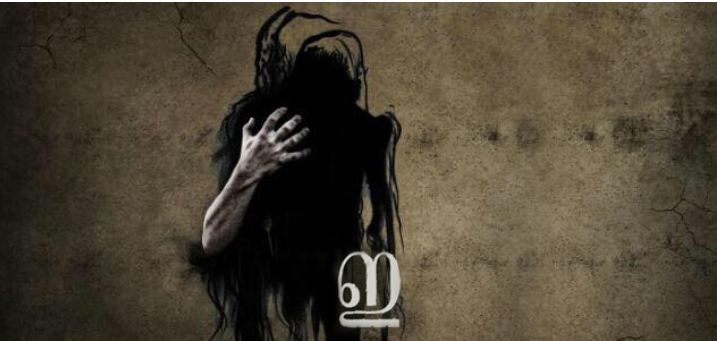

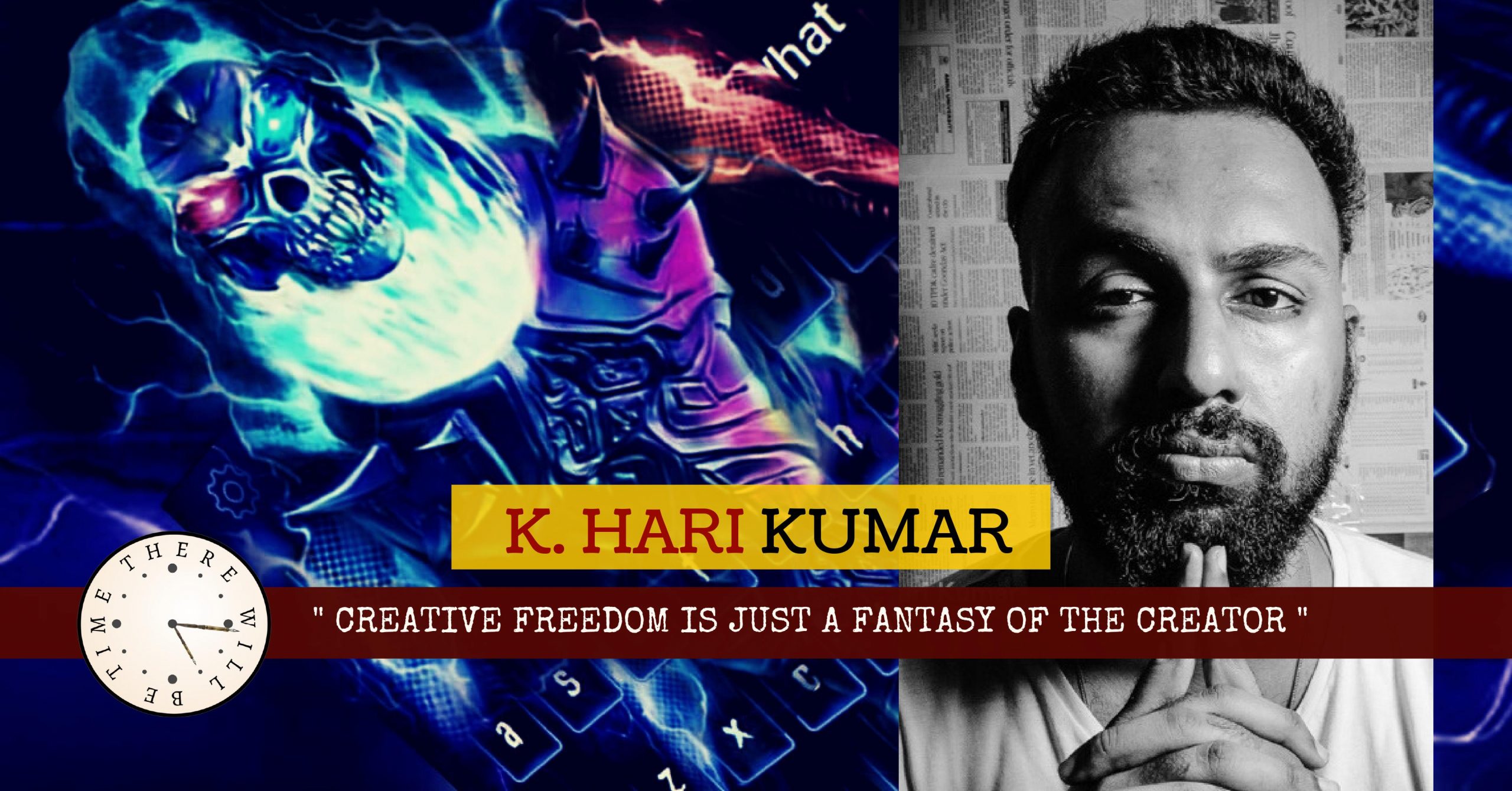
Well written
Thanks Nishi.